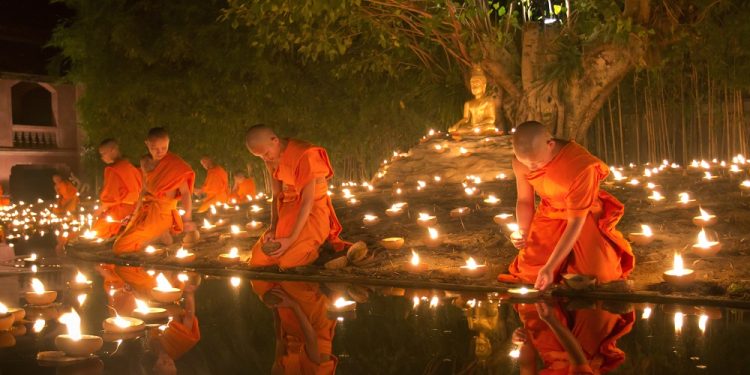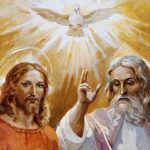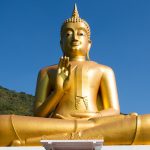
Magha Puja Day
Magha Puja is a holiday observed in many Buddhist countries and is one of the most important festivals in Buddhism. This holiday is observed annually on the full moon day that falls during the third lunar month. It has been referred to as Buddhist All Saints Day by some authors and is also known by several other names, including Fourfold Assembly Day and Sangha Day.
Although this holiday was observed by several Southeast Asian communities in the past, over the last 100+ years, it has become widely popular all over Asia for Buddhists. This holiday commemorates the 1,250 Buddhists who all came together to pay tribute to Buddha.
The History of Magha Puja
This holiday is a commemoration of an event that actually took place at Veluvana Grove, which is located near present-day Rajgir in Northern India. This event occurred ten months after Buddha’s enlightenment and was held in the afternoon hours. At this event, 1,250 disciples of Buddha came to see him, and the majority of them were pupils of Buddha, but there were also monks Sariputta and Mogallana.
It was a full-moon day of the third lunar month, which is why it is still observed in this way nowadays. It should also be noted that all of the disciples were Arahants — which means that they had attained enlightenment, gained insight into the true nature of existence, and attained nirvana.
Because of these four elements coming together all on the same day, this holiday is often called Fourfold Assembly Day. On this day, Buddha taught these Arahants a summary of Buddhism, which is the Ovadapatimokkha. Although this holiday was celebrated in Southeast Asian countries, it was not a celebration that was widely observed.
It was not until Rama V expanded the practice and made it a national celebration in the Temple of the Emerald Buddha during the 19th century that it became a popular holiday in Siam (now Thailand) and eventually spread to other countries. Rama V made this effort to regulate and centralize Thai Buddhism.
Observing Magha Puja
This holiday is observed in a number of different ways. This includes holding processions and lighting candles in monasteries, meditating, and making offerings of food. It is also a day when devotees are asked to uphold the five Buddhist moral precepts of the day.
These precepts are to avoid the killing of both humans and animals; to not steal or commit fraud and/or forgery; to avoid adultery in all of its forms; to avoid malicious, false speech and gossip; and the last precept is to avoid drugs, alcohol, and all other intoxicants.
In Thailand, this holiday is not only a religious one but it is also a national holiday. As such, there is a prohibition on buying alcohol on this day, and there are candlelight processions all over the country. Many people also spend the day attending temples, and this includes people who are not practicing Buddhists. The final way to celebrate this holiday is to give alms to monks.








